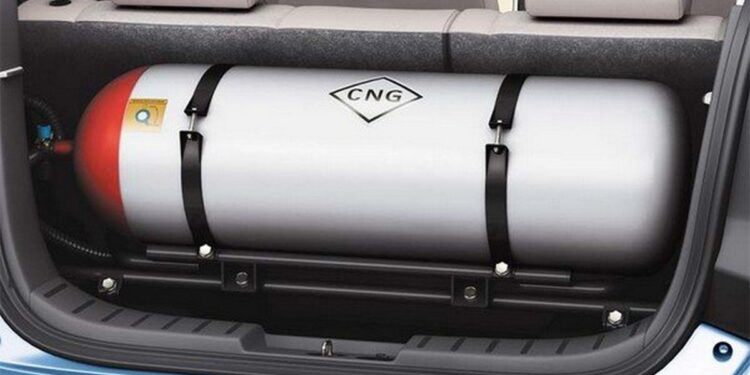Article summary
- Compressed natural gas has been proposed as a promising alternative to petrol in Nigeria due to the country’s significant natural gas reserves.
- The plan to convert Nigerian vehicles to CNG can only work in the long term, not in the short to medium term because of several challenges.
- In April 2023, IPMAN requested that the Central Bank of Nigeria be mandated to provide access to the N250 billion Gas Expansion Fund for vehicles, Keke, and truck owners to access loans to finance the acquisition of natural gas conversion kits.
PricewaterhouseCoopers Limited has taken a stance on the feasibility of compressed natural gas (CNG) as an alternative to fuel in the short to medium term.
The company stated this in its recent report on fuel subsidies in Nigeria. According to the report, some stakeholders have called for the adoption of CNG as an alternative to fuel (petrol) for vehicles in Nigeria. While CNG has the potential to reduce fuel reliance and increase natural gas-powered vehicles, PwC suggests a cautious approach to implementation.
This would increase the number of natural gas-powered vehicles in the country and many Nigerians will no longer have to rely so much on fuel. However, PwC believes that the conversion of vehicles for the use of CNG is better planned for the long term.
According to the report, CNG has been proposed as a promising alternative to petrol in Nigeria due to the country’s significant natural gas reserves. This has several potential advantages, including lower cost, reduced emissions, and improved fuel efficiency.
A part of the report stated:
- “One of the most significant benefits of CNG is that it is considerably cheaper than petrol, which could result in substantial savings for vehicle owners. Additionally, the cost of CNG is more stable than the volatile price fluctuations experienced by petrol. Also, the use of CNG could reduce vehicle maintenance cost due to its cleaner burning properties, which produces fewer engine deposits that clog up the engine over time.”
Backstory
In April 2023, the Independent Petroleum Marketers Association of Nigeria (IPMAN) wrote a letter to the Federal Ministry of Finance to present a palliative solution. The Association stated that it had partnered with Gas Analytics & Solutions Limited to co-locate natural gas dispensers on their network of over 30,000 filling stations in Nigeria.
The letter requested the Central Bank of Nigeria to be mandated to provide access to the N250 billion Gas Expansion Fund for vehicles, Keke, and truck owners to access loans to finance the acquisition of natural gas conversion kits.
IPMAN stated further that the collaboration presents the most economical and expedient platform to deploy the necessary infrastructure to support a fast national roll-out of CNG (Compressed Natural Gas) for vehicles. The letter was written following the National Gas Expansion (NGEP) initiative established by the Buhari administration in 2020.
Challenges of CNG
But the PwC report also highlights the fact that the adoption of CNG in Nigeria also presents some challenges. While CNG presents several benefits compared to fuel, there are challenges to its adoption making it an unlikely alternative to petrol in the short to medium term. These challenges include:
- The initial investment required to retrofit existing vehicles with CNG engines
- The need to establish a robust distribution infrastructure for CNG
- The need for government policies and incentives to promote the use of CNG.















Just a strategy to stall hardship in Nigeria. What’s really the way forward???
Allow vehicle users to do the conversion by themselves. Which one is 250bn. Does it mean government will do the conversion for us. Why do we always try to punish the masses
What are the opportunities for entrepreneurs?